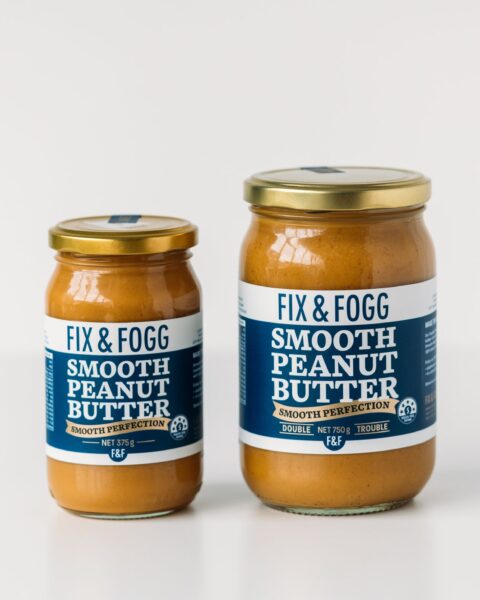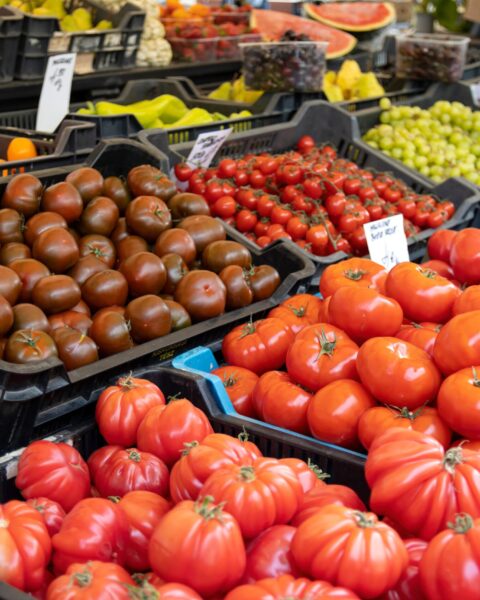Keeping your heart in top shape is easier when you incorporate the right foods into your diet. This article highlights 20 heart-healthy foods that you can easily add to your meals. Each of these foods comes with its own benefits, ensuring your heart gets the best care possible. Dive in to discover how you can make simple, tasty changes for a healthier heart.
Contents
- 1 Salmon
- 2 Walnuts
- 3 Blueberries
- 4 Oats
- 5 Spinach
- 6 Avocado
- 7 Almonds
- 8 Dark Chocolate
- 9 Tomatoes
- 10 Olive Oil
- 11 Garlic
- 12 Beans
- 13 Green Tea
- 14 Sweet Potatoes
- 15 Oranges
- 16 Flaxseeds
- 17 Pomegranates
- 18 Broccoli
- 19 Chia Seeds
- 20 Red Grapes
- 21 More From RetailShout
- 22 14 Natural Ways to Keep Pests Out of Your Garden
- 23 15 Top Melting Cheeses Recommended by a Chef
Salmon
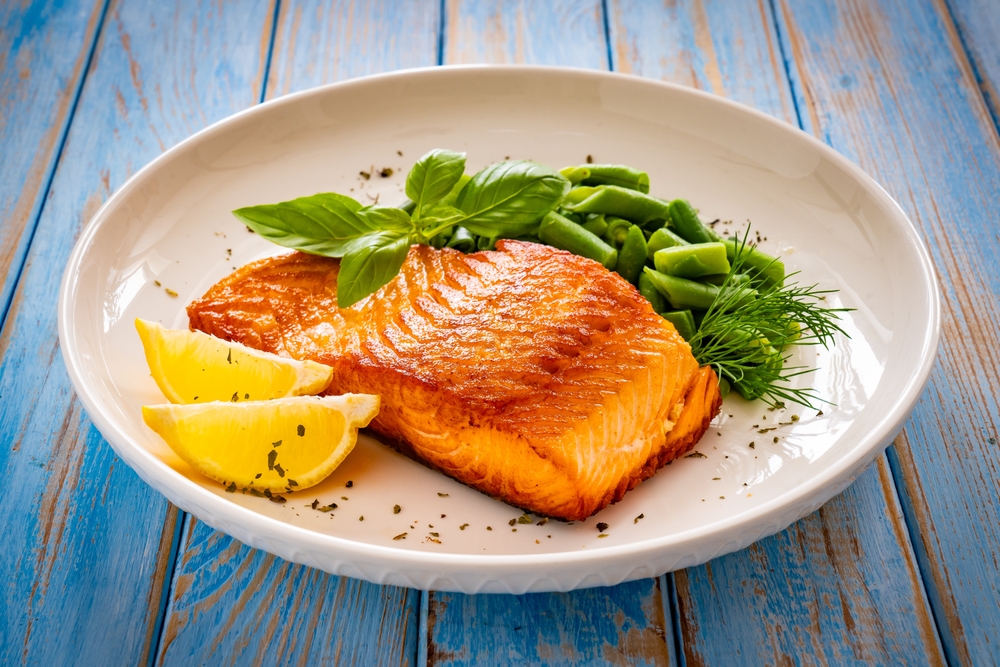
Salmon is rich in omega-3 fatty acids, known for their heart-protective benefits. These healthy fats can help reduce inflammation and lower triglycerides, a type of fat in the blood. Additionally, salmon is a great source of high-quality protein and essential vitamins like B12 and D. Including salmon in your diet can help support heart health and overall wellness.
Walnuts
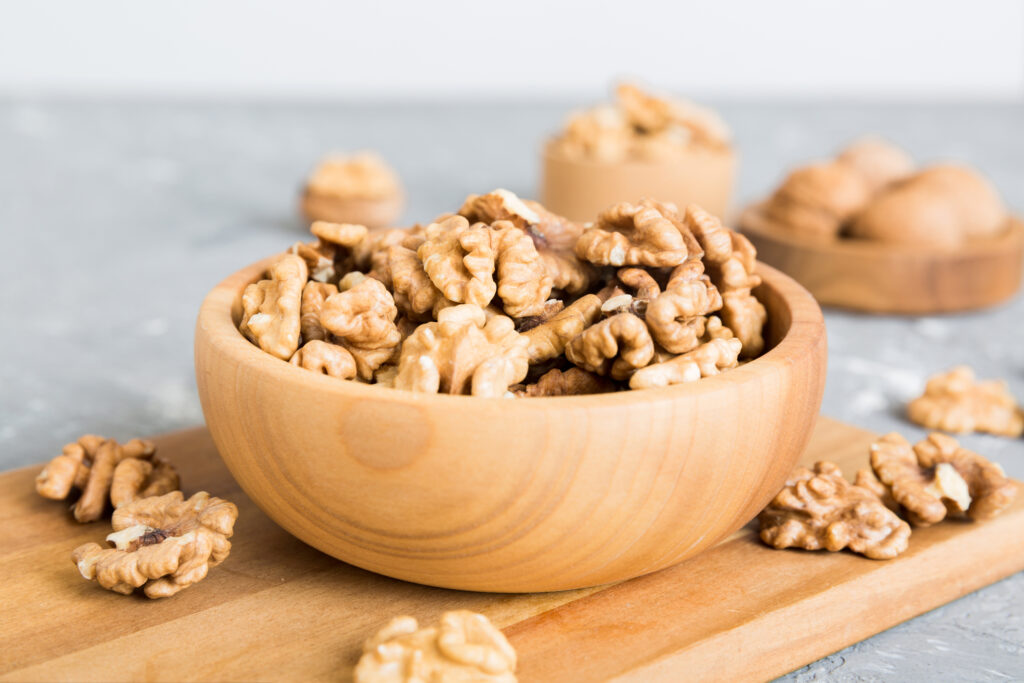
Walnuts contain heart-healthy nutrients, including omega-3 fatty acids, fiber, and antioxidants. They can help lower bad cholesterol levels and reduce inflammation, which benefits heart health. Walnuts also provide a good amount of magnesium, which is crucial for maintaining normal heart rhythms. Enjoy a handful of walnuts as a snack, or add them to salads and oatmeal for a nutritious boost.
Blueberries

Blueberries are antioxidant powerhouses that can help protect your heart by neutralizing harmful free radicals. They are also high in fiber and vitamin C, both of which contribute to cardiovascular health. Regular consumption of blueberries has been linked to lower blood pressure and improved arterial function. Add blueberries to your breakfast and smoothies, or enjoy them as a sweet and healthy snack.
Oats
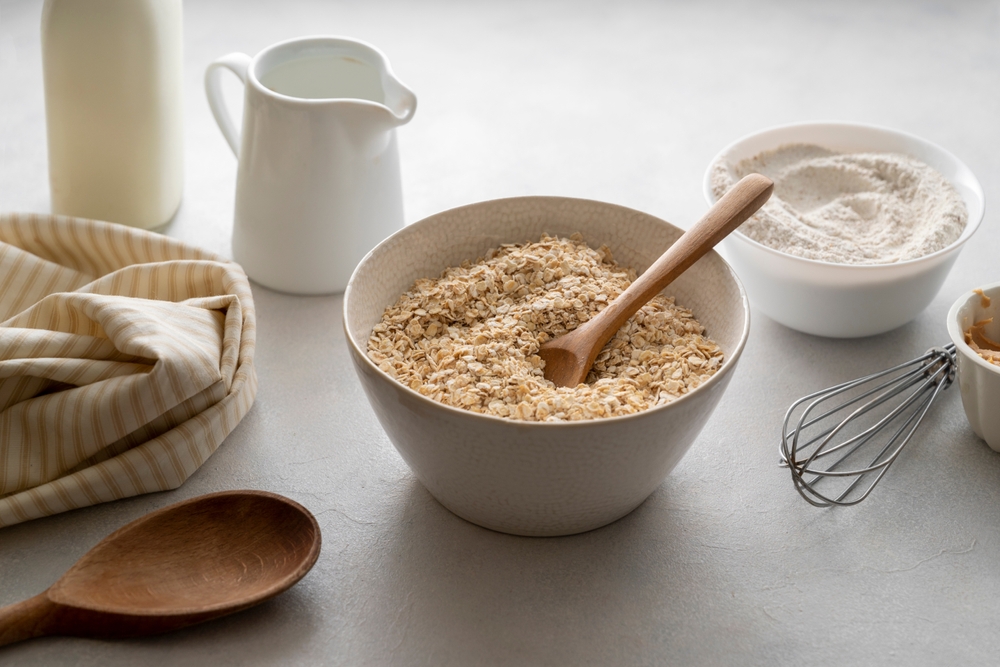
Oats are an excellent source of soluble fiber, particularly beta-glucan, which can help lower cholesterol levels. Starting your day with a bowl of oatmeal can improve heart health by reducing the risk of heart disease. Oats also contain antioxidants called avenanthramides, which have anti-inflammatory properties. Incorporate oats into your diet through oatmeal, granola, or as an ingredient in baked goods.
Spinach
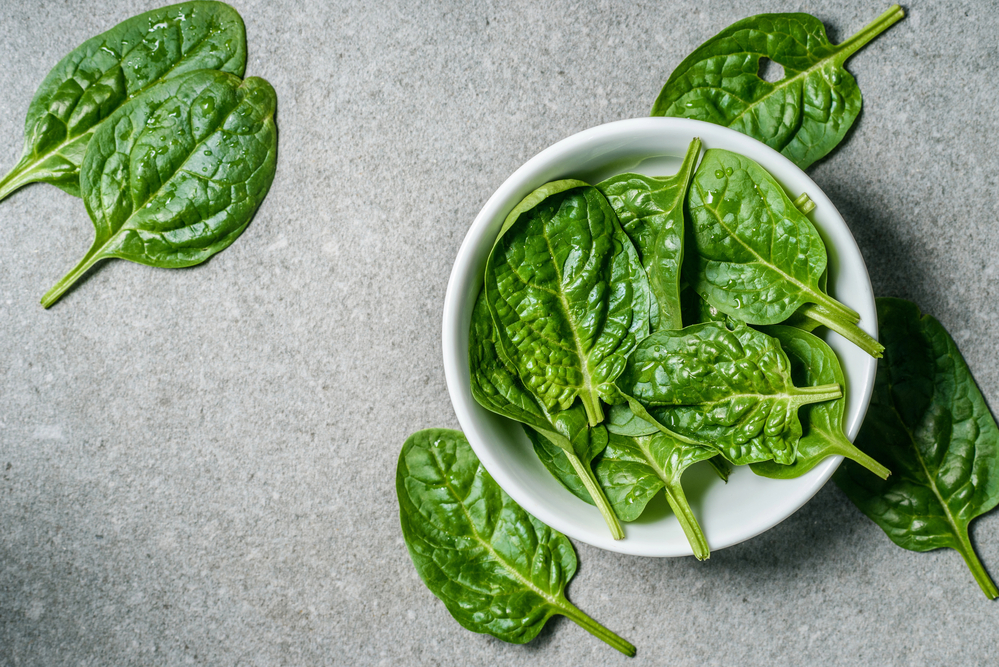
Spinach is a nutrient-dense leafy green that provides many vitamins, minerals, and antioxidants. It is particularly high in vitamin K, which is important for blood clotting and bone health. Spinach also contains nitrates, which can help improve blood flow and reduce blood pressure. Add spinach to salads and smoothies, or sauté it as a side dish for a heart-healthy addition to your meals.
Avocado
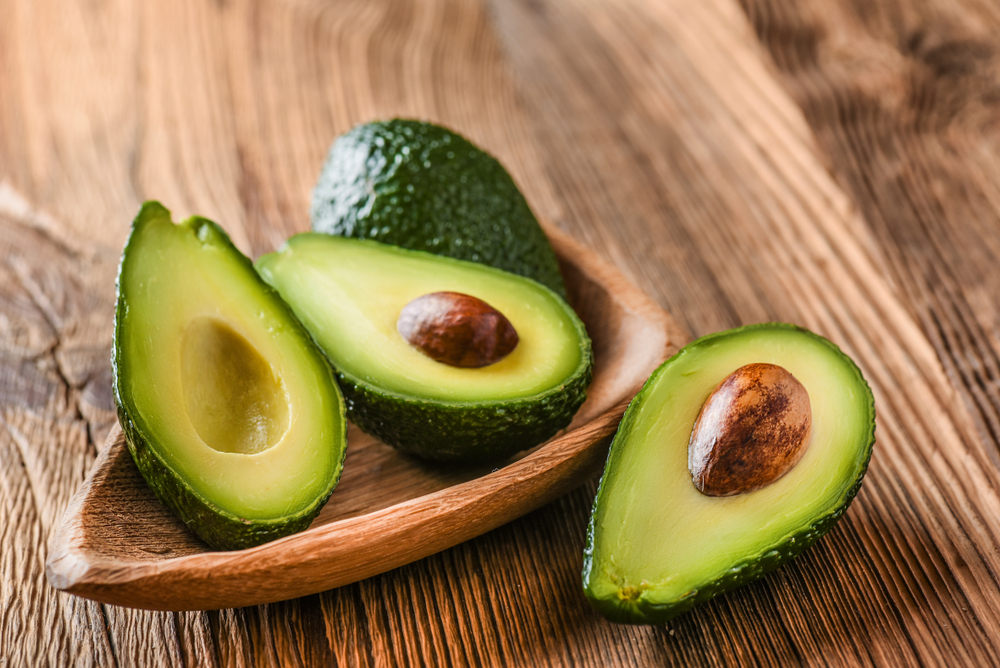
Avocados are rich in monounsaturated fats, which are beneficial for heart health. These healthy fats can help lower bad cholesterol levels while maintaining good cholesterol. Avocados are also packed with potassium, an essential mineral that helps regulate blood pressure. Enjoy avocados in salads, on toast, or as a creamy addition to smoothies for a heart-friendly treat.
Almonds
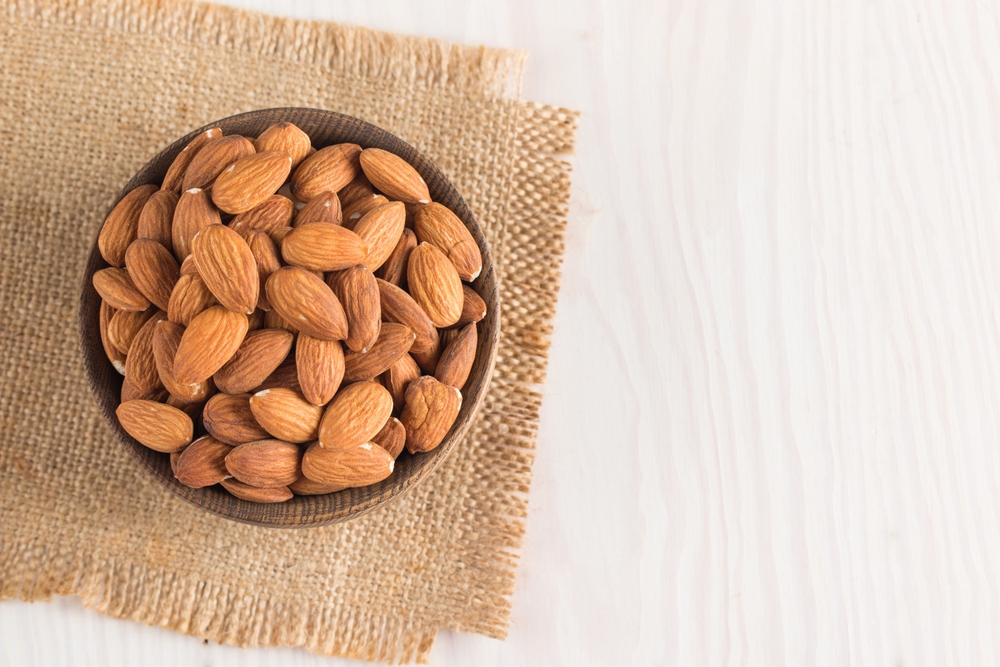
Almonds are a great source of heart-healthy monounsaturated fats, fiber, and protein. They can help lower bad cholesterol and provide antioxidants that support cardiovascular health. Almonds also contain magnesium, which is important for maintaining healthy blood pressure levels. Snack on almonds, add them to yogurt or use them in cooking for a nutritious boost.
Dark Chocolate

Dark chocolate with a high cocoa content is rich in flavonoids, which have antioxidant and anti-inflammatory properties. These compounds can help improve blood flow, lower blood pressure, and reduce the risk of heart disease. Choose dark chocolate with at least 70% cocoa to maximize the health benefits. Enjoy a small piece of dark chocolate as a satisfying and heart-healthy treat.
Tomatoes
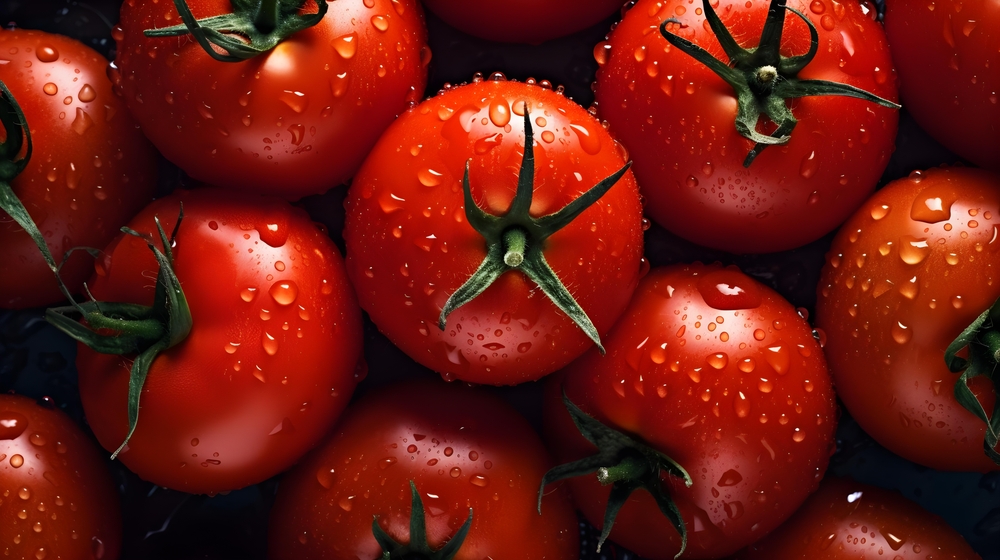
Tomatoes are a good source of lycopene, an antioxidant that has been linked to lower heart disease risk. They also provide vitamins C and K, potassium, and folate, all supporting heart health. Consuming tomatoes can help reduce cholesterol levels and improve blood vessel function. Add fresh tomatoes to salads, cook them into sauces, or enjoy them as a snack.
Olive Oil
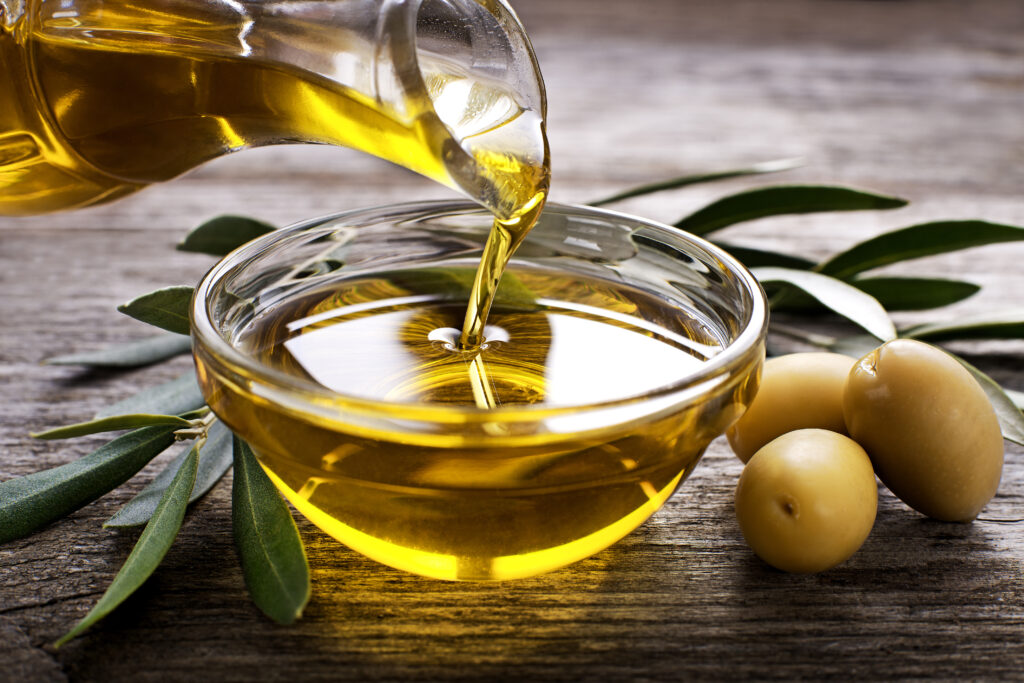
Olive oil is a staple of the heart-healthy Mediterranean diet. It is rich in monounsaturated fats and antioxidants. It can help reduce inflammation, lower bad cholesterol levels, and improve blood vessel health. Extra virgin olive oil, particularly, contains high levels of beneficial compounds. Use olive oil in dressings, for cooking, or as a flavorful dip for bread.
Garlic
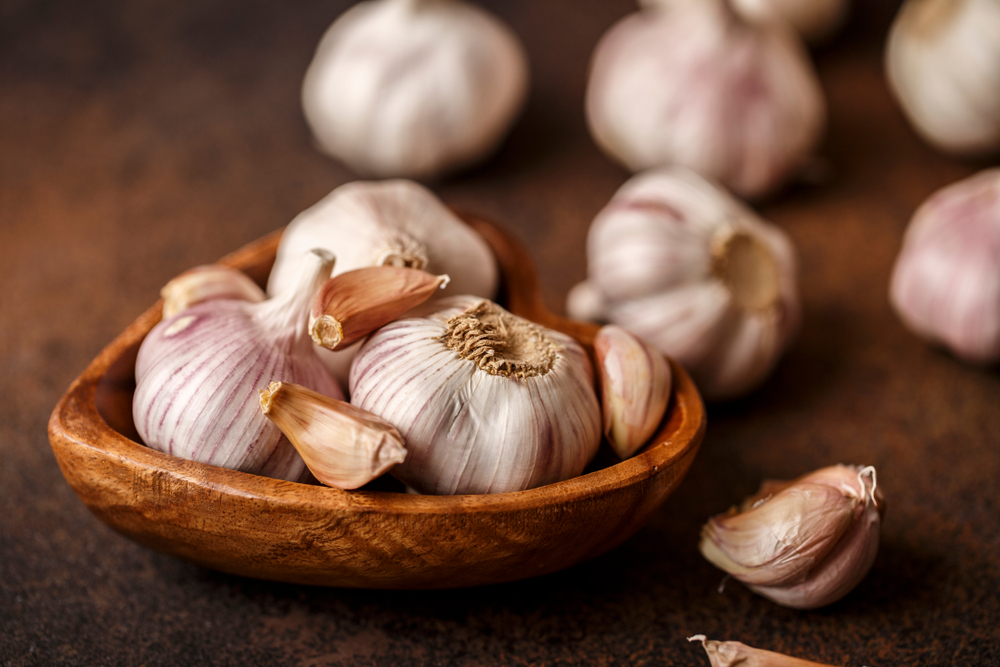
Garlic is known for its heart-protective properties, including its ability to lower blood pressure and cholesterol levels. It contains allicin, a compound with its distinctive smell and many health benefits. Regular consumption of garlic can help reduce the risk of heart disease. Add fresh garlic to your cooking or take garlic supplements to reap the benefits.
Beans
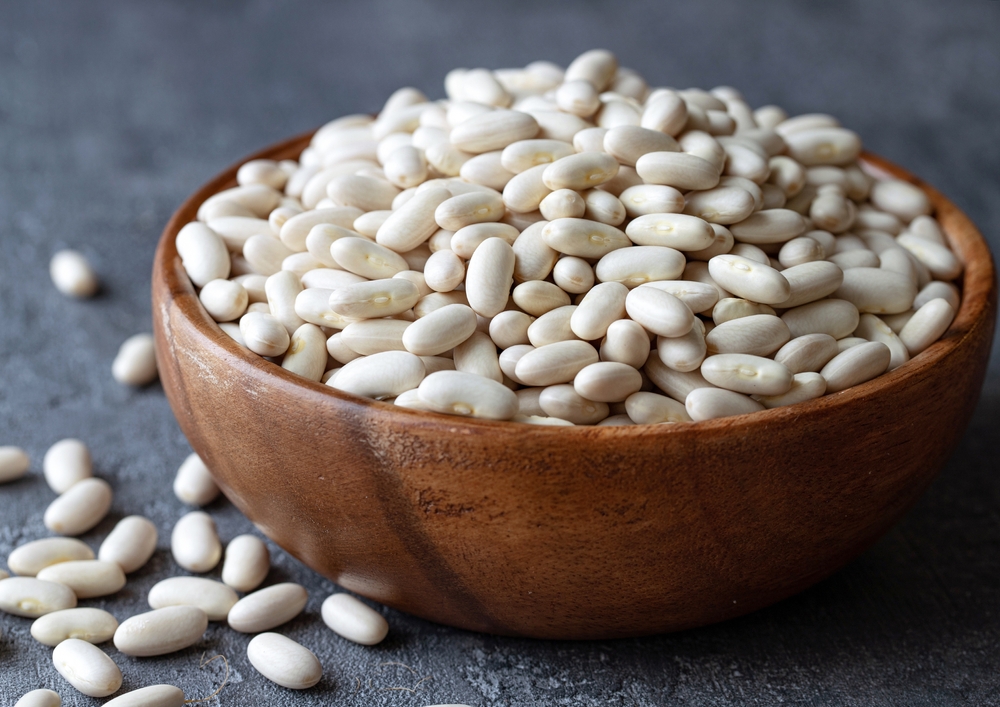
Beans are a great source of plant-based protein, fiber, and essential nutrients like potassium and magnesium. They can help lower cholesterol and stabilize blood sugar levels, both of which are important for heart health. Beans also provide antioxidants that protect against cell damage. To enhance your meals, incorporate beans into soups, salads, or as a side dish.
Green Tea

Green tea is rich in catechins, antioxidants that can help improve heart health by reducing inflammation and protecting cells from damage. Drinking green tea regularly has been linked to lower cholesterol levels and improved blood vessel function. Green tea also contains compounds that can help with weight management and benefit heart health. Enjoy a cup of green tea daily to support your cardiovascular system.
Sweet Potatoes
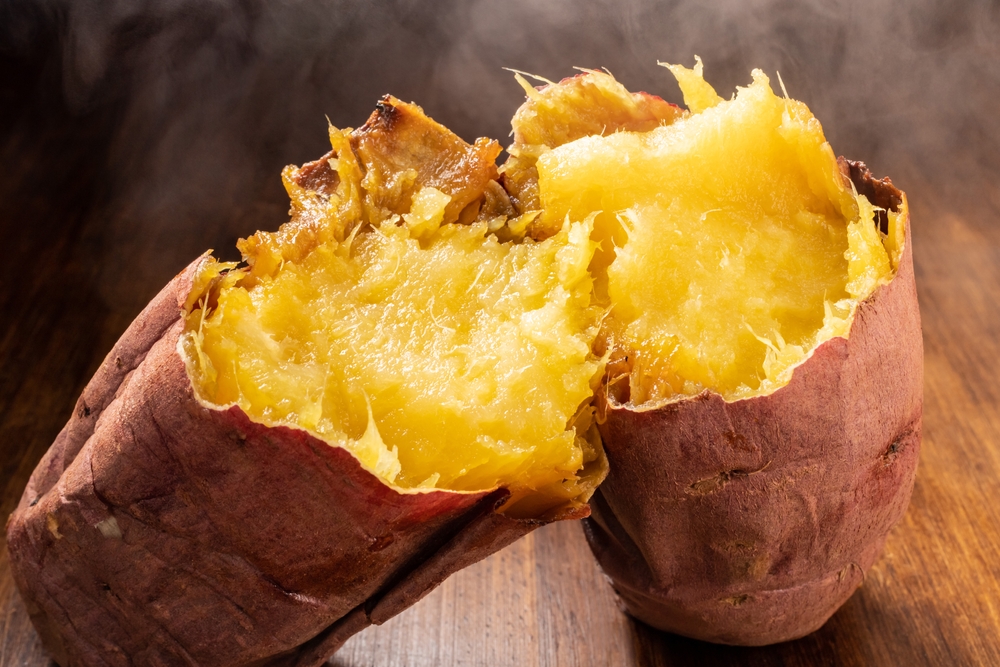
Sweet potatoes are packed with vitamins, minerals, and fiber, making them heart-healthy. They are high in beta-carotene, an antioxidant that helps protect against heart disease. Sweet potatoes also provide potassium, which helps regulate blood pressure. Roast, mash, or bake sweet potatoes as a delicious and nutritious side dish.
Oranges
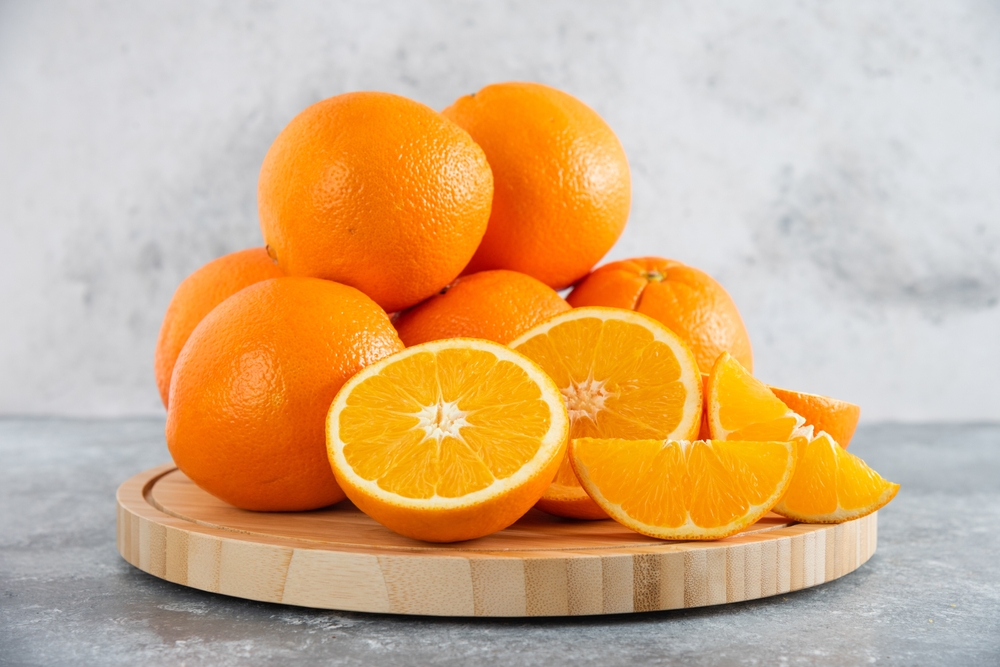
Oranges are an excellent source of vitamin C, fiber, and antioxidants, contributing to heart health. They can help lower blood pressure and cholesterol levels, reducing the risk of heart disease. Oranges also provide potassium and folate, which support overall cardiovascular function. Enjoy oranges as a snack, in salads, or as a fresh juice.
Flaxseeds
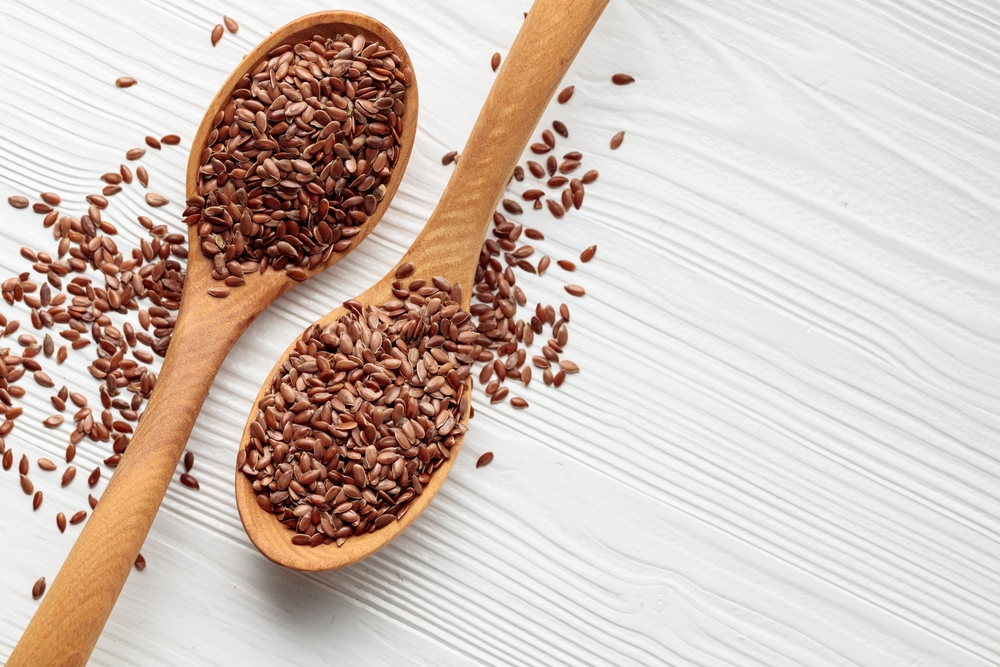
Flaxseeds are rich in omega-3 fatty acids, fiber, and lignans, which can help improve heart health. These nutrients can reduce inflammation, lower cholesterol, and improve blood vessel function. Flaxseeds also provide a good amount of plant-based protein. Add ground flaxseeds to smoothies, yogurt, or baked goods for a heart-healthy boost.
Pomegranates
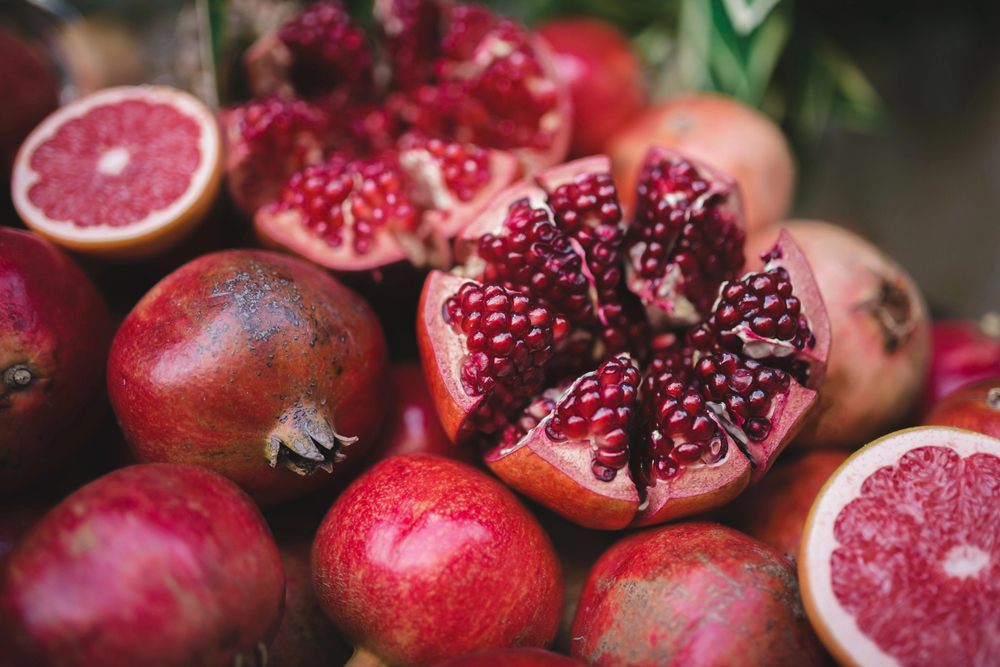
Pomegranates contain antioxidants, particularly punicalagin, and anthocyanins, which have heart-protective effects. These antioxidants can help reduce inflammation and lower blood pressure. Pomegranates also support healthy blood flow and reduce the risk of arterial plaque buildup. Enjoy pomegranate seeds as a snack, or add juice to your diet.
Broccoli

Broccoli is a nutrient-dense vegetable that provides vitamins C, K, and fiber, all supporting heart health. It contains sulforaphane, a compound that helps reduce inflammation and protect against heart disease. Broccoli also offers a good amount of potassium and folate. Steam, roast, or add broccoli to stir-fries for a nutritious meal addition.
Chia Seeds
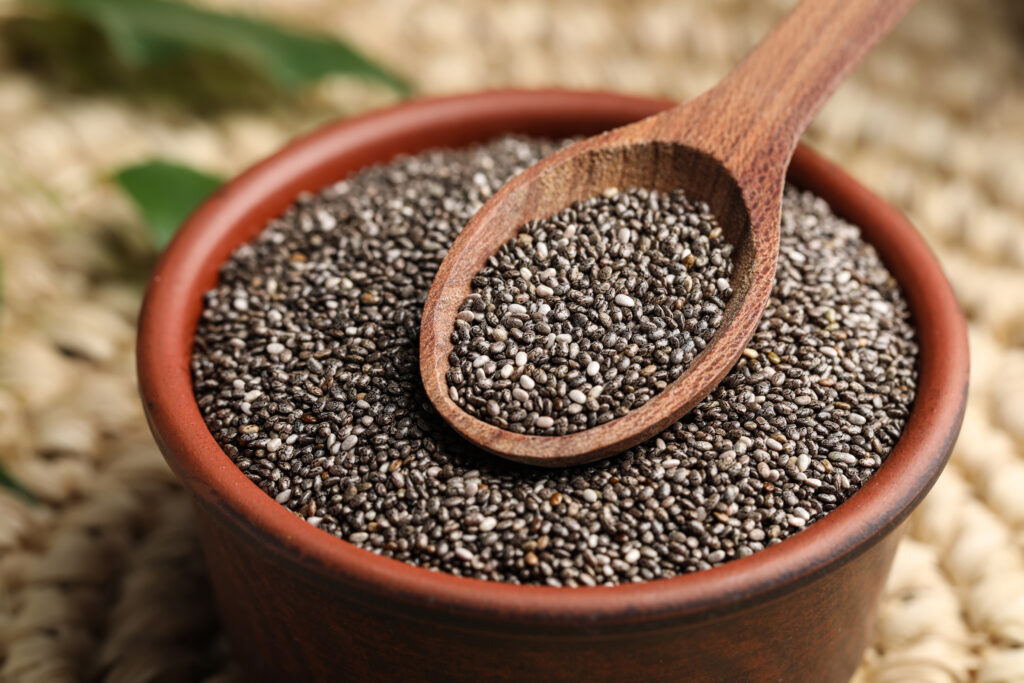
Chia seeds are tiny but packed with heart-healthy nutrients like omega-3 fatty acids, fiber, and antioxidants. They can help lower cholesterol levels, reduce inflammation, and improve blood pressure. Chia seeds also provide plant-based protein and essential minerals. Add chia seeds to smoothies, yogurt, or make chia pudding for a nutritious snack.
Red Grapes
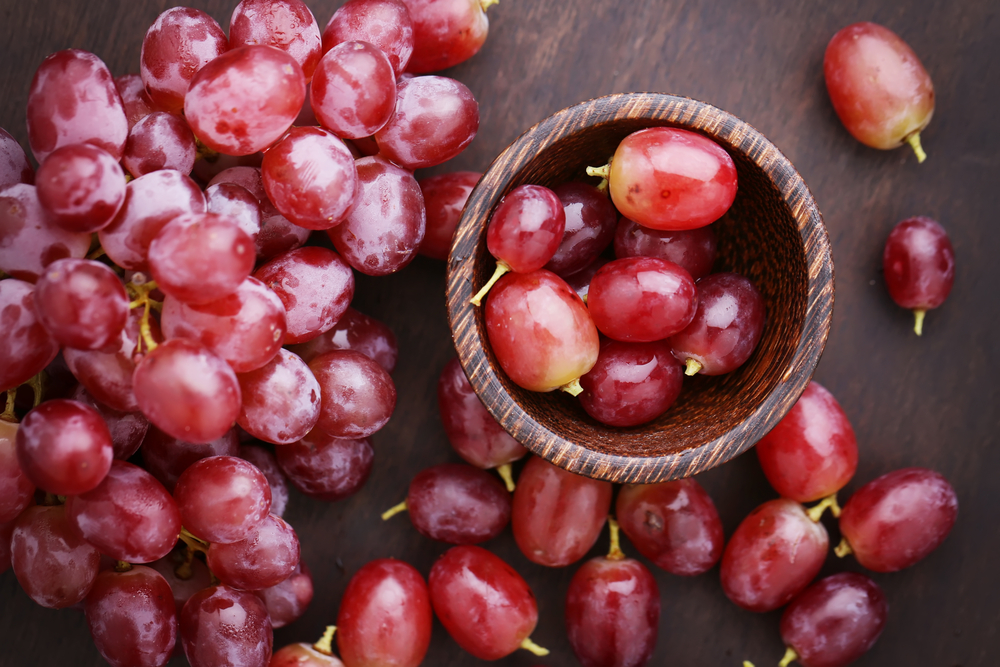
Red grapes are rich in resveratrol, an antioxidant that has been linked to heart health benefits. They can help reduce inflammation, lower cholesterol levels, and improve blood vessel function. Red grapes also provide fiber and vitamins C and K. Enjoy red grapes as a snack or add them to salads and desserts for a heart-healthy treat.
This article originally appeared on RetailShout.
More From RetailShout
15 Kitchen Tricks Every Chef and Beginner Needs to Master

Cooking can be a joy, but it’s even better when you know a few handy tricks to make everything easier and more efficient. Whether you’re just starting out or have been cooking for years, these 15 genius kitchen hacks will change the way you cook. Read More.
14 Natural Ways to Keep Pests Out of Your Garden

Gardening is a labor of love, but nothing can spoil your hard work faster than unwelcome pests. Instead of reaching for harsh chemicals that can harm your plants and the environment, why not explore natural methods to keep your garden thriving and pest-free? Read More.
15 Top Melting Cheeses Recommended by a Chef

Melting cheese can turn an ordinary meal into something amazing. Whether it’s a gooey grilled cheese, a creamy fondue, or a deliciously cheesy pizza, the right cheese can make all the difference. Read More.

